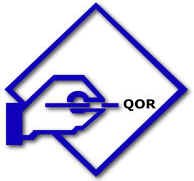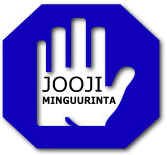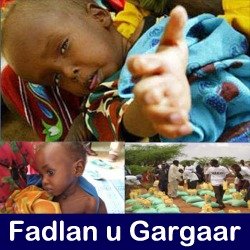July 31, 2012
The International Community (IC) has delivered a pre-approved mandatory “Draft Provisional Constitution (DPC)” to 135 “Traditional Leaders (TLs)” and 825-member “National Constituent Assembly (NCA) with the official message that both groups are not allowed to make amendments to the draft document or to reject it. The UN-led Constitution-Making Process for Somalia could be described all but “legitimate, accountable, transparent, participatory, inclusive and most importantly Somali-led” as claimed by the Special Representative of the UN Secretary General (SRSG) and head of the United Nations Political Office for Somalia (UNPOS).
From the beginning, the Constitutional process has been funded, managed and controlled by the IC through United Nations bodies and the International Development Law Organization (IDLO) which implements the Italian funded project for “Supporting the Constitutional Review Process (CRP) in Somalia.” On July 23, UNPOS released a revised version of DPC previously signed by the six (6) signatories of the Roadmaps process in Nairobi, Kenya on June 23, 2012. It issued a new Guide Book explaining the contents of the DPC. Additionally, for surprise reversal of position, the SRSG announced the increase of the number of Members of People’s House of Federal Parliament (FP) from 225 to 275 members.
Two mysterious committees- a Technical Review Committee and a Transitional Federal Government (TFG) Joint Implementation Unit[1]– have the discretionary power to amend continually the DPC while UNPOS has brazenly overruled the proposals for amendments or postponement of DPC debate from the majority of the Somali leaders. The Minister for Constitution, Federalism and Reconciliation, Hon Abdurahman Hosh told the NCA members in clear terms that they should not waste their time studying the already pre-approved mandatory Draft Constitution and they should applaud for the work done as a sign of appreciation. Otherwise NCA members could be labeled as “spoilers.” UNPOS has predetermined that just one-fourth of 825 NCA-member is needed to vote on a loaded question[2]. Even if NCA rejects it, DPC remains the law of the land. Somalia has been subjected to a transitional system of governance and to a Constitution-Making process never experienced in recent history.
The latest version of DPC contains 143 articles and its predictable effect is the “End of Somalia as a country and people” and “not the End of Transition period for permanent system of governance.” The provisions of DPC promote all sorts of problems and political dynamics such as social fragmentation and conflicts, secession or separation, foreign claims over Somali territory, primacy of international laws over Somalia laws, long term foreign military occupation, installation of bogus Federal Government (FG) and protracted stalemate over the formation of Federal Member States (FMSs).
Salient provisions of the DPC
The Guide Book which explains main salient provisions of the DPC outlines the followings:
1) Federalism: DPC prescribes a Federal system of government (Federalism) for Somalia for three reasons:
(a) To accommodate the existing regional governments, specifically Puntland or GalMudug; No mention of Somaliland.
(b) To accommodate the distinct regional needs of the Somali people. This Somali distinction echoes Ethiopia’s strategic perspective towards Somalia[3].
(c) To implement shared rule (in central government) and self-rule (in regional government).
2. Noted Problems of Federalism in the Guide Book:
(a) The creation of FMSs proved to be very controversial issue during the constitutional conferences. The responsibility for establishing FMSs has been invested in the the House of the People of FP subject to the recommendations from an Independent Commission on Boundaries and Federation.
(b) The allocation and regulations of natural resources, public finance and tax raising powers are still subject to negotiations between FG and non-existing FMSs. In accordance with article 50 (b), DPC requires in anticipation that governmental functions are exercised and taxes are being collected at the level of government where they are most effectively being exercised or raised. The interpretation of this requirement is open for dispute. Also, each FMS has the freedom to formulate its own land policy
(c) Although foreign affairs, national defense, citizenship and immigration, and monetary policy shall be part of the remit of the FG, existing FMSs (Puntland) retain and exercise their powers on the basis of their State Constitutions independently from the FG. Yet, FG must consult at all-time with FMSs on matters related to federalism, security and foreign affairs.
(d) FMSs are exclusively empowered to develop the status, structure and competences of local governments, and any further political and administrative decentralization deemed necessary through their own State Constitutions without reference to FG or DPC.
3) Independent Commissions: DPC creates Independent Commissions, which shall be bodies operating separately from government or political control to handle specific governmental functions.
4) Civil Servants: DPC regulates only FG civil servants.
5) Judicial System: DPC provides three different levels of courts: (1) Constitutional Court, (2) FG Courts, and (3) FMSs Courts. The Constitutional Court and the FG level Courts will be administered by the Judicial Services Commission (JSC). FMSs Courts will be administered by Institutions created by FMSs Constitutions.
6) Peace, Security and Defense: FG is responsible for the guarantee of the peace, security and national sovereignty of the FG. However, each FMS is entitled to establish its own FMS’s police to protect the lives and property of its people alone or in cooperation with the federal police force.
7) Representation: The parliament of each FMS represents its population. Members of the People’s House of FP represent the entire population of the Federated FMSs. Then, the Upper House of FP represents FMSs. These complicated representations for Somalia need separate discussions.
8) Amendments: There are two processes for constitutional amendments. One process is to be followed in the period before the popular referendum on DPC and the other one is to be practiced after popular referendum. In any case, Amendments to the Constitutions will require 2/3 of Upper House of FP which does not exist. This situation prohibits amendments of any type to DPC.
9) Effect of DPC. DPC comes into effect at the conclusion of the NCA 9-days conference in Mogadishu, Somalia.
Implications of the salient provisions of the DPC
I. The Guide Book omitted the discussion of certain controversial provisions of the DPC. Some of those omissions are:
1) The philosophical interpretation of the articles 2, 11, 17, and 18 all related to religion, equality and personal freedom. Similarly the Guide Book did not clarify the contradictions between articles 53 on International negotiation and 54 on allocation of powers.
2) The reasons for eliminating functional relationship between the President and the Upper House of FP.
3) The reasons for the subjection of the Somali territory to international dispute as per article 7 (3).
4) The rationale behind the supremacy of the international laws and the laws of other countries over the Somali Law in all matters as per article 40 (2) on the interpretation of the fundamental rights.
- II. Problems and dynamics causing the End of Somalia
(a) Federalism for Somalia has never been thoroughly debated among Somalis for their long term unity, stability and prosperity. That is why there is no legitimate consensus on the issue since 2002. Alternatively, there is quasi unanimous consensus on democratic system of governance with effective decentralization based on the distribution of finance, services, development and political power. Forced Federalism is unworkable and counterproductive.
(b) DPC creates bogus FG without stakeholders, financial resources and ability to exercise practically any national political power. It also creates parallel federal, state and local systems of governance without national hierarchies and accountability. To the detriment of national unity, infinite FMS(s) Presidents, Council of Ministers, Parliaments, security forces, civil services and independent judiciary structures will sprawl all over. In a historical time when the international assistance has dwindled and the motto is for small Government at all levels, DPC forces the worn-torn Somalia to establish unsustainable structures of system of governance without allocation of power, financial resources and massive external support.
(c) DPC grants five special privileges to FMSs. First, each FMS is independent from the FG. Second, FG must consult with each FMS in its decision making process regarding federal system and security arrangement. Third, each FMS’s citizenship is recognized despite DPC says National Citizenship is indivisible. Fourth, existing FMSs are exempt from the contribution to the costs of FG’s nominal representation of all Somalis. Residents of non- existing FMSs bear FG’s financial burden. Fifth, each FMS independently pursues its foreign interests. There are no reciprocal privileges from FMSs towards FG. FMSs dominate FG. This mirrors the ideas behind the failed US articles of confederation of 1781.
(d) Territories and people under FG rule will more likely suffer exploitation, political and economic mismanagement, violence and foreign military occupation.
(e) Recognition of Puntland as FMS could intensify conflict between Somaliland and Puntland. At the same time, the exclusion/exemption of Somaliland from the coverage of DPC will legalize its secession from Somalia. In addition, the acceptance of Federalism based on 18 regions de-legitimizes the existence of Puntland and Somaliland as FMSs. These contradictions undermine national dialogue for genuine national accord and reinforce national fragmentation.
(f) Given Puntland as a model for FMS, DPC encourages the daily emergence of mini-States throughout Somalia which could lead to social tension and long term instability.
(g) DPC deprives FG of the constitutional legitimacy of representing Somaliland and Puntland in the international arena.
(h) FP has no power in exercising constitutional amendments, given the inexistence of the Upper House of FP, and other restrictions built in the DPC for proposing, drafting and approving amendments before and after popular referendum.
The Somali people have been denied the right and opportunity to participate the UN-led constitutional making process and their demand for ownership has been treated with contempt. The DPC is imposed on Somalia with intimidation and corruption. To some extent, the negative attitude of the Somali intellectuals has encouraged the IC to invest the national political power in six (6) individuals without legitimate representation and to organize show conferences of TLs and NCA without legitimate purpose. Nevertheless, PDC instigates challenges that could halt or delay the march towards peace, stability and progress in Somalia.
Mr. Mohamud M Uluso
mohamuduluso@gmail.com
[1] It is hard to keep up with the changing terminology and names invented by IC for media attention.
[2] http://unpos.unmissions.org/LinkClick.aspx?fileticket=Crs_XvJpAd4%3d&tabid=9705&language=en-US “ Should this draft provisional constitution be provisionally adopted to provide for a better Somalia, help reconstruct our country and set us on the right path to justice and lasting peace, pending final adoption at the referendum? “
[3] http://www.mfa.gov.et/docs/Foreign%20Policy%20English.pdf







































Asc..walaalayaal ani ahaan, aad ayaan uga xumahay qaabkaan fedralismkaa, maxaa yeelay awoodaada ayuu qaybinayaa, dadkii ayuu sii kala fogaynayaa, hadana anigu dan ayaan maanta u arkaa, waayo soomaalia 60dameeyadii dawlad unitariyaa la dhisay, cidkasta hantideedii gurigeeday ka keentay muqdishaa la dhisay, kadib cidii lahayd wixii huf iyo halaan jirin bay ka dhigtay, is aaminaadii baa ka baxday meeshaa, Ala maxaan hoygayga u dhisan waayaa ka dhacday, walina wax isma badalin oo cidkasta nafsii nafsii bay taagantahay, marka maanta sidii la isku fahmayo hala isu raaco, hala tartamo, ninkastaa gurigiisa ha dhisto, bari markii dib la isugu calool fiyoobaadana, hada aan aragno, laakiin dad kala jeeda oo midba mid xumaantiisu u muuqato, midba mid farta ku fiiqayo, maanta in la isku qoqobo, u malayn maayo inay sax tahay, dee haduu mar fedral yimaadana, member stateska ama ismaamuladu sida puntland oo kaliyoo awoodaha aad sheegtay, way yeelanayaan, waayo fedral systemka ayaa siinaya, marka hadiiba fedral laga hadlo, awoodahaasi way jirayaan,,,,,marka ani waxaa ila muhiimsan inaan marka hore ka shaqayno, see dib la isu calool fiyoobaan karaa,, waa laga yaabaa inaad tiraad soomaali ayeynu, dad walaalaa maalinbaa dagaalnay hadana waan heshiinay, ee fedral maxaa na dhex dhigay,, taasi way u cuntamaysaa cid Allaaah uu u naxariistay un, oo wax fahansan, laakiin dadka badankood, waxaa ku recordgaraysan, guryahay ka dhaqaaqeen iyagoo balaqan intay dhib mareen iyo xumaanoo dhan,, marka waan inaan halkaas wax ka eegnaa, kadibna isku daynaa jiilka soo socda suu saafi uga ahaan lahaa cuqdad nafsigaan lakala qabo, taasoo lagu gaari karo kaliya in jiilkaas loogu dadaalo sidii diinta looga dhisi lahaa, ileen taariikhi ma harayso, markastana way ku hortaalaa, laakiin waxa kaliee lagu ilowsiin karo waa caqiido saafiya oo dib u liqsiis dhacdooyinka yar yar ee ka mida meertooyinka dunida…
….wabillaahi towfiiq….
1960 waxaanu qaadanay unitery sytem waxaana ku dhismay xamar oo caasimadii wadanka ah,maantana waxaanu qadanay fedaral sytem si ay goboladu u dhismaan waxayna inaku beeraysaa wadaniyad iyo in horumarka lagu tartamo intii aanu xamar cidii xakumi lahayd isku laynayno maalinwalba tankale dawladaha deriska ah way ku horumareen fedaralka sida ethopia iyo kenya oo hadda qaadanaysaa why no for somalia, try to rebuild central regions dr ulusow.